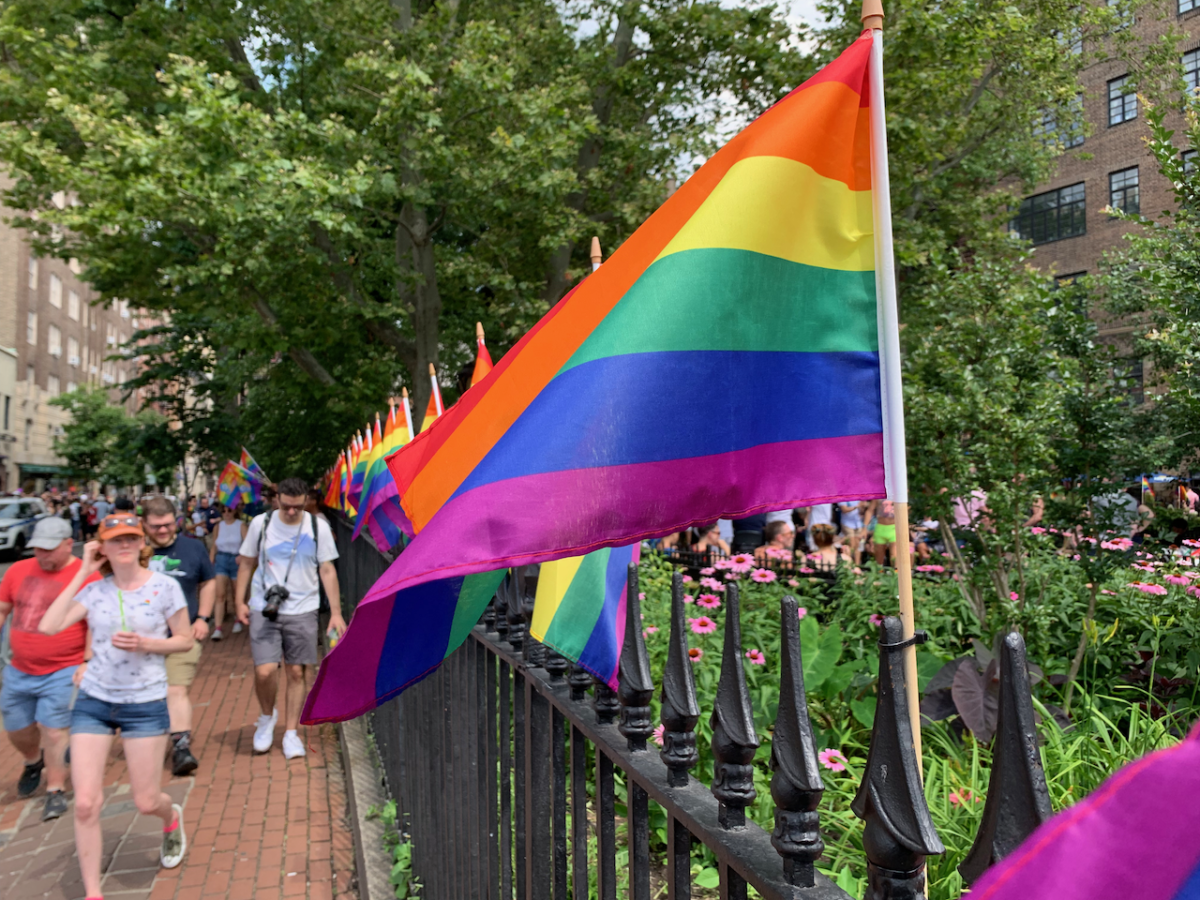Gayskool
-
🏳️🌈 Transformational Technology
If it weren’t for Lynn Conway, the Daily Dave wouldn’t be online. It would be handwritten. Or mimeographed. Or carved on a stone tablet. Conway, a trans woman, changed the way computers ran programs, and later revolutionized the way we create and produce microchips. It’s not hyperbole to say that…
-

🏳️🌈 Take Me Out to the Ballgame
Since I wrote about baseball yesterday, let’s switch gears today and talk about … (checks notes) … baseball. Depending on who you ask, the first Pride night at an MLB stadium was held in 1994, 2000, or 2001. In 1994, the San Francisco Giants held an “Until There’s a Cure…
-
🏳️🌈 Up High!
Did you know that the high five was invented by a gay man? As the story goes, on October 2, 1977, L.A. Dodger Glenn Burke, the first MLB player to come out, was on deck and Dusty Baker was about to cross the plate and score his 30th home run.…
-

🏳️🌈 It’s the Most Wonderful Time of the Queer
It’s June, which can only mean one thing1 — it’s Pride month! And that calls for another 30 days of Gayskool, my LGBTQ history project here at the Daily Dave. You can brush up on old Gayskool posts here. Come back tomorrow for my first post, which may or may…
-
🏳️🌈 History’s Biggest Celebration of Pride — 50 Years After Stonewall
The biggest LGBTQ event in history1 was exactly two years ago today — and the Complimentary Spouse and I were there! More than five million people participated in WorldPride. It was legendary. The parade had hundreds of floats, thousands of marchers, and at least three million gallons of glitter. Here’s…
-
🏳️🌈 Animal Magnetism
Animals can be gay! Scientists have observed same-sex behavior, including pair bonding and parenting, in many species. My favorite same-sex animal couple is Roy and Silo, a pair of chinstrap penguins at the Central Park Zoo. When an opposite-sex penguin couple couldn’t take care of a second egg, Roy and…
-
🏳️🌈 Where It all Began
Anything I write about the Stonewall Riots, which began 52 years ago today, will pale in comparison to what others have said. Let’s just say that the shot glass heard ’round the world changed millions of lives for the better.
-
🏳️🌈 Before Stonewall
While Stonewall was the event that galvanized the LGBT rights movement, there were many organizations advocating for equality before the first brick was thrown. Two of the most famous are the Mattachine Society, founded in 1950 to support gay men, and the Daughters of Bilitis, founded in 1955 for lesbians.…
-
🏳️🌈 Marriage Equality at Last
Six years ago today, the Supreme Court ruled for marriage equality in Obergefell v. Hodges. It’s hard to describe to straight people exactly how momentous this was. This passage is one of the most profound things I have ever read: “No union is more profound than marriage, for it embodies…
-
🏳️🌈 Sickening
In 1973, the American Psychiatric Association removed homosexuality from its list of mental illnesses. Before that watershed decision, LGBTQ people were seen as sick people in need of a cure. Today, the medical community is often at the forefront of the fight for fair and fact-based healthcare for gays, lesbians,…
